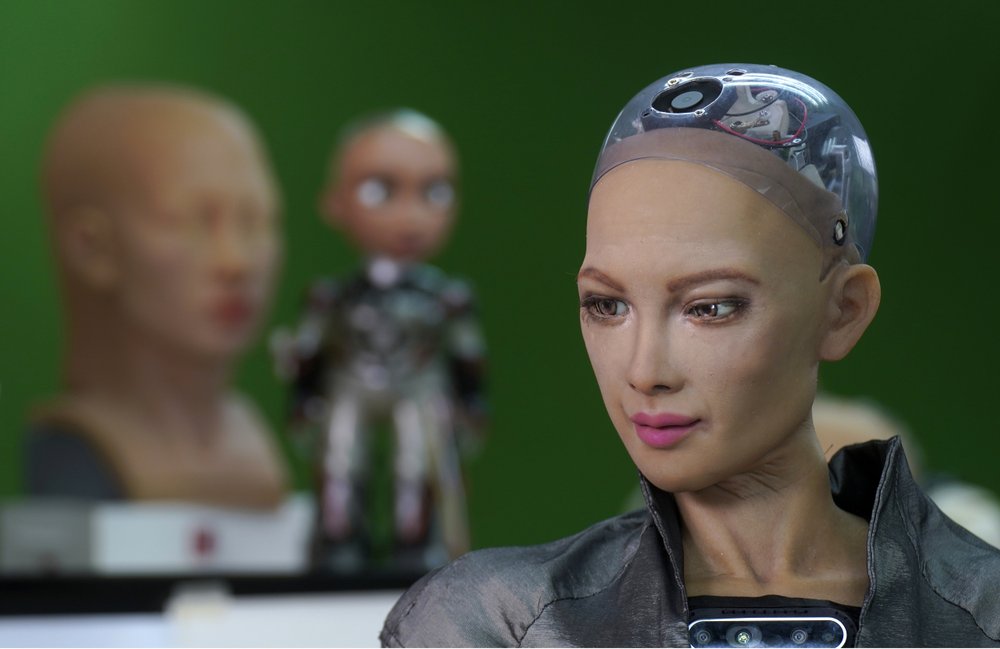Do you think the relationship with money changed since the global pandemic began? According to a new global poll, the answer is “yes.” According to the survey, 67 percent of people trust robots more than humans when managing their business and personal finances.
Money & Machines, the new report from Oracle and personal finance expert Farnoosh Torabi, surveyed 9,000 executives and consumers in 14 countries. The findings point to a future with fewer cash transactions and new focus areas for corporate finance professionals.
For CFOs and other executives, the implications could be profound, impacting their roles, teams, and companies’ business models.
Pandemic uncertainty leads to behavioral changes
Fear and anxiety about a pandemic are changing people’s behavior when it comes to managing money. The survey shows that 90 percent of business leaders are concerned about the impact of Covid-19 on their business, while 87 percent of consumers have financial fears.
The most common concerns among business leaders are A slow recovery or recession (51 percent), budget cuts (38 percent), and bankruptcy (27 percent).
For consumers, the biggest fears are as follows: Job loss (39 percent), loss of savings (38 percent), and never getting out of debt (26 percent).
Business leaders trust robots more than their teams
While two-thirds of survey respondents said they trust robots more than humans, the percentage was even higher among business leaders. According to the survey, 73 percent of executives trust a robot more than themselves when managing finances, and 77 percent trust robots more than their finance teams.
Both consumers and businesses recognize that the recent pandemic has exacerbated fears around money and fundamentally changed our finance relationship. The future of finance will likely be a combination of robots and humans working in tandem to produce results faster and more efficiently than anyone ever thought possible.
The First Artist Robot
Sophia is a robot that has many talents – she talks, jokes, sings, and even makes art. In March, she caused a stir in the art world when a digital work she created as part of the collaboration was auctioned off for $688,888 in the form of a non-fungible token (NFT).
The sale shone a spotlight on the growing craze in the NFT market, where people can buy ownership rights to digital content. NFTs each have a unique digital code stored on blockchain ledgers that allows anyone to verify the authenticity and ownership of items.
David Hanson, CEO of Hong Kong-based Hanson Robotics and Sophia’s creator, has been developing robots for two and a half decades. He believes that realistic-looking robots can connect with people and help in industries such as healthcare and education.
Sophia is the most famous robot creation from Hanson Robotics, with the ability to mimic facial expressions, carry on conversations and recognize people. In 2017, she received citizenship from Saudi Arabian, becoming the world’s first robot citizen.
“I envisioned Sophia as a creative work of art that could generate art itself,” Hanson said in an interview.
“Sophia is the culmination of a lot of art and technology, and the idea that she could then generate art was a way for her to connect emotionally and visually with people,” he said.
Sophia worked with Italian artist Andrea Bonaceto, who drew portraits of Sophia. Sophia then processed his work through neural networks and then created her digital artwork.
The digital work, which sold for $688,888, is titled “Sophia Instantiation” and is a 12-second video file that shows Bonaceto’s portrait evolving into Sophia’s digital painting. The physical artwork painted by Sophia accompanies it.
The buyer, a digital art collector and artist is known as 888 with the Twitter handle @Crypto888crypto, later sent Sophia a photo of his painted arm. The robot processed that and added that image to her knowledge, painting more strokes on the original work.
Sophia is a robot that has many talents – she talks, jokes, sings, and even makes art. In March, she caused a stir in the art world when a digital work she created as part of the collaboration was auctioned off for $688,888 in the form of a non-fungible token (NFT).
The sale shone a spotlight on the growing craze in the NFT market, where people can buy ownership rights to digital content. NFTs each have a unique digital code stored on blockchain ledgers that allows anyone to verify the authenticity and ownership of items.
David Hanson, CEO of Hong Kong-based Hanson Robotics and Sophia’s creator, has been developing robots for two and a half decades. He believes that realistic-looking robots can connect with people and help in industries such as healthcare and education.
Sophia is the most famous robot creation from Hanson Robotics, with the ability to mimic facial expressions, carry on conversations and recognize people. In 2017, she received citizenship from Saudi Arabian, becoming the world’s first robot citizen.
“I envisioned Sophia as a creative work of art that could generate art itself,” Hanson said in an interview.
“Sophia is the culmination of a lot of art and technology, and the idea that she could then generate art was a way for her to connect emotionally and visually with people,” he said.
Sophia worked with Italian artist Andrea Bonaceto, who drew portraits of Sophia. Sophia then processed his work through neural networks and then created her digital artwork.
The digital work, which sold for $688,888, is titled “Sophia Instantiation” and is a 12-second video file that shows Bonaceto’s portrait evolving into Sophia’s digital painting. The physical artwork painted by Sophia accompanies it.
The buyer, a digital art collector and artist is known as 888 with the Twitter handle @Crypto888crypto, later sent Sophia a photo of his painted arm. The robot processed that and added that image to her knowledge, painting more strokes on the original work.
Sophia is a robot that has many talents – she talks, jokes, sings, and even makes art. In March, she caused a stir in the art world when a digital work she created as part of the collaboration was auctioned off for $688,888 in the form of a non-fungible token (NFT).
The sale shone a spotlight on the growing craze in the NFT market, where people can buy ownership rights to digital content. NFTs each have a unique digital code stored on blockchain ledgers that allows anyone to verify the authenticity and ownership of items.
David Hanson, CEO of Hong Kong-based Hanson Robotics and Sophia’s creator, has been developing robots for two and a half decades. He believes that realistic-looking robots can connect with people and help in industries such as healthcare and education.
Sophia is the most famous robot creation from Hanson Robotics, with the ability to mimic facial expressions, carry on conversations and recognize people. In 2017, she received citizenship from Saudi Arabian, becoming the world’s first robot citizen.
“I envisioned Sophia as a creative work of art that could generate art itself,” Hanson said in an interview.
“Sophia is the culmination of a lot of art and technology, and the idea that she could then generate art was a way for her to connect emotionally and visually with people,” he said.
Sophia worked with Italian artist Andrea Bonaceto, who drew portraits of Sophia. Sophia then processed his work through neural networks and then created her digital artwork.
The digital work, which sold for $688,888, is titled “Sophia Instantiation” and is a 12-second video file that shows Bonaceto’s portrait evolving into Sophia’s digital painting. The physical artwork painted by Sophia accompanies it.
The buyer, a digital art collector and artist is known as 888 with the Twitter handle @Crypto888crypto, later sent Sophia a photo of his painted arm. The robot processed that and added that image to her knowledge, painting more strokes on the original work.
A tweet on Sophia’s account described the work as the first NFT collaboration between an “AI, a collective mechanical being, and an artist-collector.”




